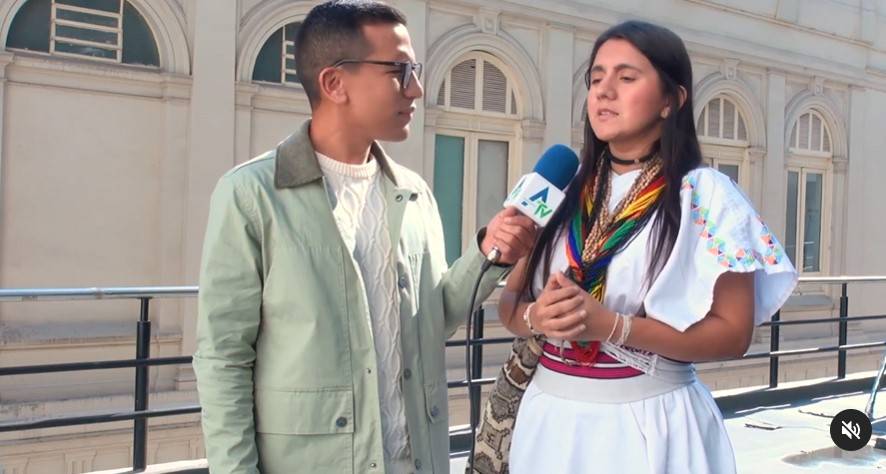Conversation with the Arhuaco Indigenous Leader, Alejandra Izquierdo about her participation in the III Latin American Meeting of Possible Territories, which took place in La Plata, Argentina.

AGROSAVIA participated in the III meeting of possible territories held in La Plata Argentina from April 17 to 19. AGROSAVIA's participation in this scenario is important because, compared to its 30 years of creation, the evolution in its knowledge model that has kept it at the forefront in technological linkage is shown internationally. Vegetable network researchers Yanine Rozo from the Palmira Research Center and Adriana Tofiño from the Motilonia Research Center presented presentations on the results of the Ocañera onion, biofortified bean and drought agenda projects. The III meeting of possible territories was organized by the Latin American Scientific Network “Possible Territories, Praxis and Transformation” of the Institute for Research in Humanities and Social Sciences (IdIHCS, CONICET-UNLP) and the National University of La Plata (UNLP).
The inauguration of the event was led by the Vice President of Scientific Affairs of CONICET Mario Pecheny. Delegates from Spain, Mexico, Brazil, Peru, Ecuador, Uruguay and Argentina attended the event. The most striking thing about the event is that not only researchers participated, but also companies with social responsibility, ethnic and popular leaders.
The themes of the meeting revolved around the management of the territory with perspectives of territorial justice, human economy and socio-ecological transition to achieve more just and sustainable territories. CONICET researcher Horacio Bozzano, member of the organizing committee of the event, explained that the scope of sustainable territories requires the approach of common objectives of the actors that come together in the territory such as "articulating productions of the social, exact and natural sciences in which from "At the beginning of the investigation, the identities and needs of the most forgotten social groups and the most abused environments are heard, recorded, analyzed and interpreted, clearly with the accompaniment of inclusive public policies in the most socially and environmentally vulnerable territories." In reference to this objective, results of Participatory Action-Research projects and the concrete application of Popular Science Agendas-ACP were presented to bring science closer to communities and to promote policies.
more inclusive public. Among them, the presentations of the impacts of community universities, the cultural tourist routes planned by the communities themselves, and the blue agave seen as a product and practice in Mexico stand out.




